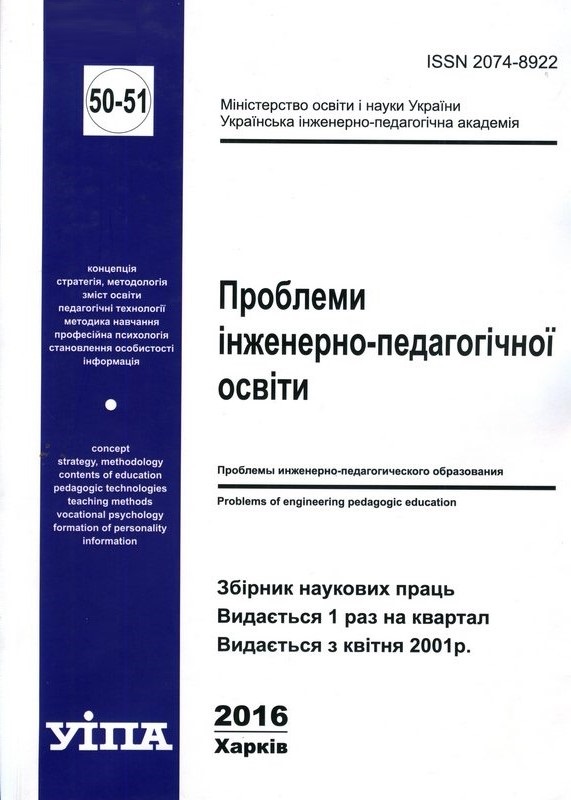Анотація
The article deals with the ground of the conception of sustainability society development,
basic approaches (synergistic, activity, competence, communicative, information and
communications technology) and objective laws of e-learning in a higher educational
establishment. The methods of synthesis, actualization and systematization of foreign and native
literature are used on the questions of modern education development with e-learning application
at higher school, paying attention to the processes of globalization. The modern stage of
development of information society is analysed, where the basis are education and knowledge. The
results of analysis of the basic universally recognized didactics principles of studies are reflected
within the limits of electronic studies. The results of analysis of the basic universal recognized
didactics principles of learning are reflected within the framework of e-learning. The advantages
and disadvantages of e-learning are distinguished in educational activity of higher educational
establishments. The priorities of blended learning are outlined on the modern stage of higher
education development. The system of influence of electronic devices on an educational process is
shown. The forms of communication, that are widespread in e-learning, are considered, taking into
consideration changing the role of an educational manager as a leader, a teacher as facilitator and a
student as an active participant of the learning process. It is analysed necessary skills that are
required to develop learning e-materials. A research result is a ground of necessary approaches and
conditions for effective application of e-learning in higher educational establishments, which will
give an opportunity to improve the quality of specialists of new generation preparation.


